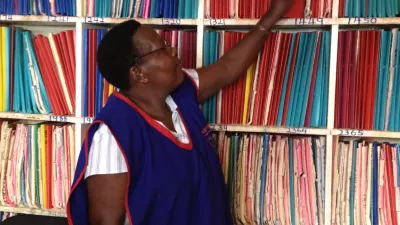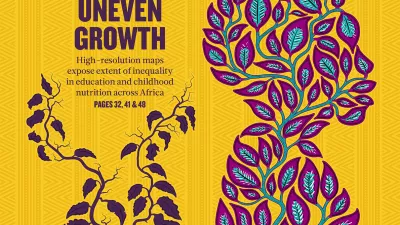Acting on Data
Discover stories from around the world about the people turning IHME evidence into health impact.Communicating GBD to policymakers: UL’s experience with injury data in Vietnam
Underwriters Laboratories focused on home and workplace safety, publishes a Safety Index, an algorithm-based data science initiative to foster safe conditions through scientific applications addressing safety, security, and sustainability challenges. Data is integral to the Safety Index, and UL utilizes data from the Global Burden of Disease study (GBD).
Why estimate?
We use more 90,000 data sources in the Global Burden of Disease. Why do we use estimates instead of simply presenting the data points?
Accelerating progress toward universal health coverage in Kenya
As part of its Big Four agenda, the government of Kenya is committed to providing universal health coverage by 2022. Global Burden of Disease (GBD) collaborators in Kenya are shedding light on ways that the study can help the country reach this goal.
Determining causes of death: How we reclassify miscoded deaths
Knowing what someone died of can be complicated. We often talk and think about death as a singular event. We say, “he died of cancer” or “she died of old age.” In reality, a series of domino effects are often occurring inside the body that lead to someone’s death.
Making GBD data sources speak a universal language
The Global Burden of Disease (GBD) study relies on a lot of data – over 90,000 data sources, in fact. Each of these data sources has their own distinct way of collecting information and measuring health. How do we make these sources speak the same language?
What data sources go into the GBD?
Estimates are only as strong as the evidence they are built on. The Global Burden of Disease (GBD) study produces millions of estimates of health around the globe, estimates that are informing real-world policy and implementation. That means that they have to be built on good data, and a lot of it.
Clearing the air: Using GBD to understand the impact of pollution on health
How do we quantify the health impacts of a risk factor such as pollution, which is pervasive, difficult to detect, and often underreported? Richard Fuller, environmentalist and President of Pure Earth, is taking on the challenge.
Tackling America’s burden
At the US Senate on April 17, 2018, Professor Ali Mokdad presented findings about health in the US at a briefing for Senate health staff. The goal of the presentation was to raise awareness about how Global Burden of Disease (GBD) data could be a valuable resource for them, and how states can use GBD data to advocate for money to address different health problems.
Counting sickness on a global scale
Everyone deserves to live a long life in full health. Inspired and fueled by this idea, the Global Burden of Disease study, or GBD, seeks to answer the question of what sickens and kills people of all ages around the world.
New Series: IHME Foundations
What do the largest development bank, largest global public health agency, and largest funder of primary biomedical research have in common? Well, among other things, their use of IHME’s work for decision-making.
Ensuring long lives are healthy lives in Singapore
In his 2017 National Day Rally speech, Singapore’s Prime Minister Lee Hsien Loong expressed his commitment to tackling an important challenge facing the country: Singaporeans are living some of the longest lives in the world, but, particularly in old age, they are not always healthy ones.
Zooming in on advances and opportunities
Precision maps reveal significant health and education disparities within African nations.
Burden of disease data help to illuminate new policy priorities in Rwanda
In Rwanda, IHME’s collaborators are using GBD data as they tackle the growing burden of non-communicable diseases (NCDs) and improve care for people living with disabilities.
Using GBD to reform Ukraine’s health system
Ukraine has revamped its health system using the Global Burden of Disease (GBD) study to better address the health problems of its people. The Ministry of Health of Ukraine is also working with IHME to improve the science behind the estimates.
Tackling diarrhea: An ‘Aha’ moment that changed the course of global health
According to Harvard Business Review, people often make great decisions not while actively trying. These “aha!” moments can lead to brilliant, unexpected ideas or solutions. In 1993, a man in Seattle had such an “aha!” moment reading a study about diarrhea. Nearly 25 years later, that moment, unquestionably, helped change the course of global health.














